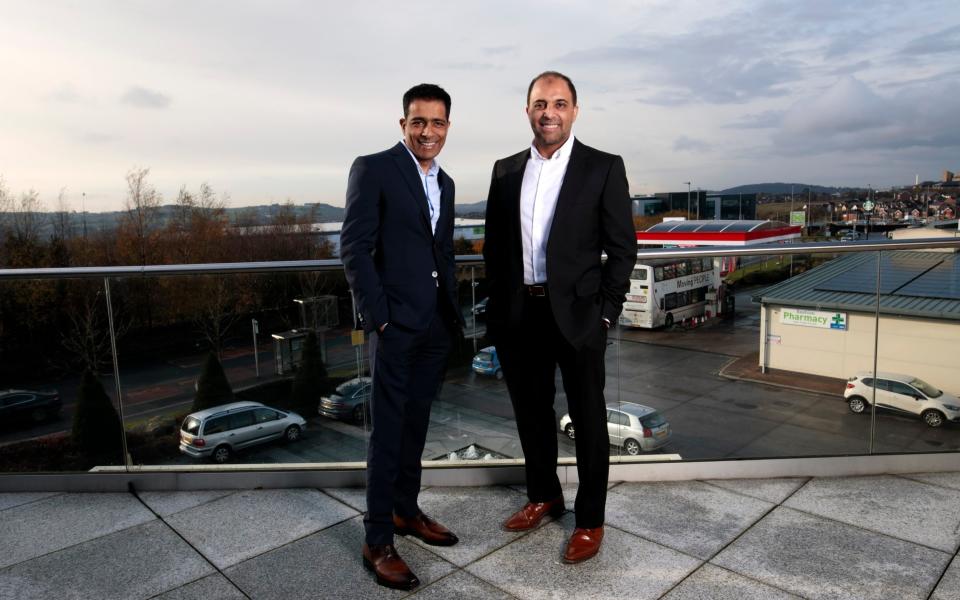The Issa brothers' Asda takeover is the deal of the century – on paper

The billionaire Issa brothers have been unequivocal about their ambition for Asda to become the country’s second largest supermarket chain, following years of jostling with Sainsbury’s for the spot.
The brothers, from Blackburn, emerged victorious with their £6.8bn bid for Asda in October 2020, backed by private equity firm TDR Capital. Only last month, Mohsin Issa, the older of two, said he was “pleased with the progress made in the six months since we officially took over the business”.
And now their business partners have reason to be cheerful too – on paper, at least.
London-based buyout fund TDR told investors their stake in Asda has been valued at almost 20 times the amount they put in, a remarkable feat thanks to the way the deal was funded: largely through a combination of substantially increasing the debt on the supermarket chain and selling off some of its assets.
After the completion of the takeover the new owners sold Asda’s logistics network for £1.7bn, for instance, allowing them to recoup significant portions of their investment.
The Issas and TDR committed just £800m of equity towards the deal - lower than the average buyout.
While this may appear to be one of the greatest leveraged buyout deals in recent years, questions remain about the valuation, the culture being built and future ambitions. As one portfolio manager suggested: “It’s obviously purely a paper-based exercise.”
The high valuation, they add, is “largely because they are taking the Morrisons multiple of 9.1x [earnings], as opposed to the multiple they bought it for [into account], which was 6.5x”.
By these calculations, Asda would be worth £11.8bn, including debt - more than 1.7 times its £6.8bn valuation when purchased.
A year after Asda was offloaded by US giant Walmart to the Issas and TDR, rival private equity firm Clayton, Dubilier & Rice bought Morrisons for £9.8bn, including debt. The latter has had some delays in financing the deal as borrowing becomes more expensive.
TDR has said the portfolio update was part of its regular reports to its investors and that the valuation metrics it uses are in line with comparable transactions and public market comparisons.
Meanwhile, TDR documents revealed their commitment of €334m (£280m) was funded in conjunction with EG Group, the petrol station empire it also co-owns with the Issas who founded it in 2001, the Financial Times first reported. TDR's stake in Asda is worth €1.7bn (£1.4bn).
This suggests that the Issas, rather than TDR, could be more exposed if Asda’s business took a turn for the worse amid rising inflation, while higher interest rates make interest paid on debt more expensive. Morrisons recently warned its profits were likely to take a hit this year as the cost-of-living crisis and inflation weigh on the grocery market.
While Asda’s operating profit increased to £693m in 2021, up 42pc compared with £486.5m the previous year, this was predominantly thanks to a reduction in Covid-related costs.
Industry observers believe the amount of leverage on Asda’s balance sheet could potentially become burdensome if it seeks to become more competitive on prices, threatening to alienate shoppers as the battle for business ramps up amid the cost-of-living crisis.
Meanwhile, a string of executives have left Asda since the takeover, which insiders say marked a sharp change in culture following 22 years of Walmart ownership.
Last week former finance chief John Fallon announced he was leaving the business to “take on new challenges” after less than a year in his post – making him the latest executive to head for the door after 26 years with the business.
Fallon is to be replaced next year with Michael Gleeson, Morrisons’ former finance chief.
Gleeson’s appointment is somewhat symbolic as both Asda and Morrisons have been laden with debt after being taken over by private equity firms. The buyouts have largely been financed through high-cost borrowings.
“He must have been waiting in the wings for a while,” says a retail headhunter. “But what Gleeson wants to do is beyond me [going from one PE-backed company to another].”
Roger Burnley, chief executive, left last August - sooner than planned. Anthony Hemmerdinger, chief operating officer, and Preyash Thakrar, strategy chief, who were both expected to potentially secure the top job, have also parted ways with the company.
The Telegraph reported in September that Mohsin – described as “very work-oriented” by his sister-in-law Asma in a rare interview with BBC Radio 4 – had assumed the de facto leadership role at Asda and was spending most of his time in Leeds, where the grocer is based.
Insiders said at the time that a stark contrast in operating styles soon became apparent between him and Burnley, with the brothers’ approach widely described as entrepreneurial and the culture fast-moving by those who know them.
Speculation is mounting as to what the co-owners’ next move will be. They have been linked to the bidding for Boots, the UK’s leading chemist, which could mean more pharmacies and beauty products will be added to Asda stores if a deal materialises.
The Issa brothers - who also own Leon and Cooplands, the fast-food and bakery chains - have been adding Asda shops to their petrol stations and plan to have about 300 in the coming years as they seek to dominate shoppers’ spending. Only time will tell if their ambitions are realised.
Asda, the Issa brothers and EG Group declined to comment.

 Yahoo Finance
Yahoo Finance 